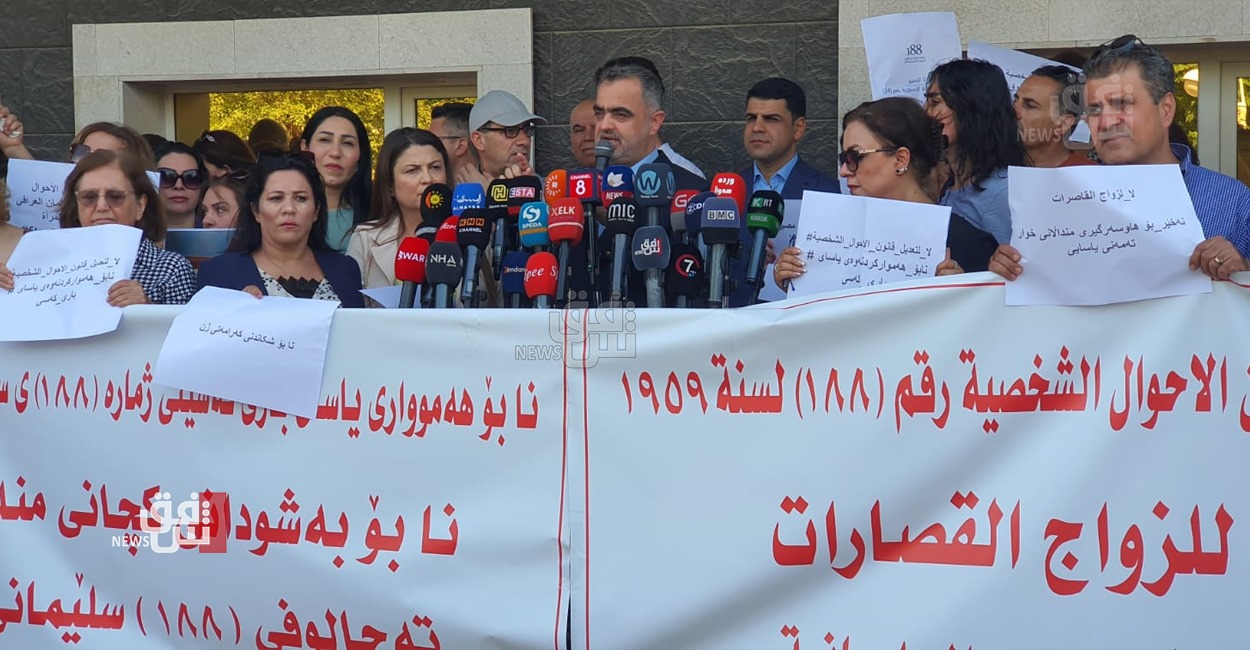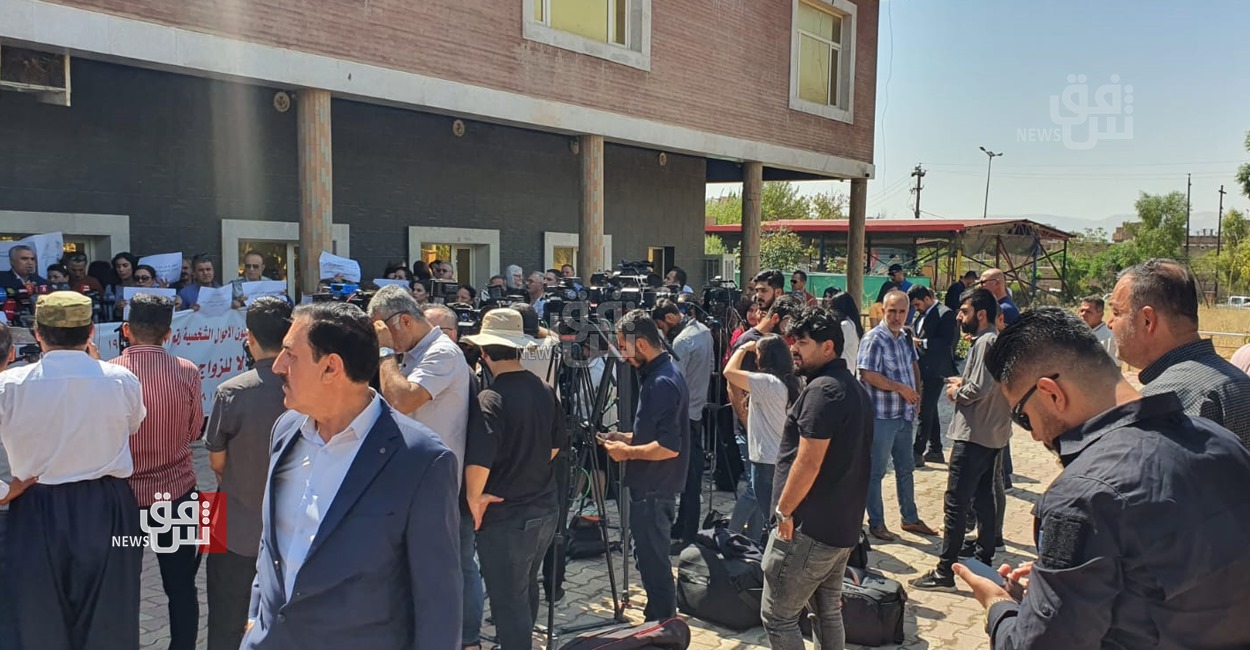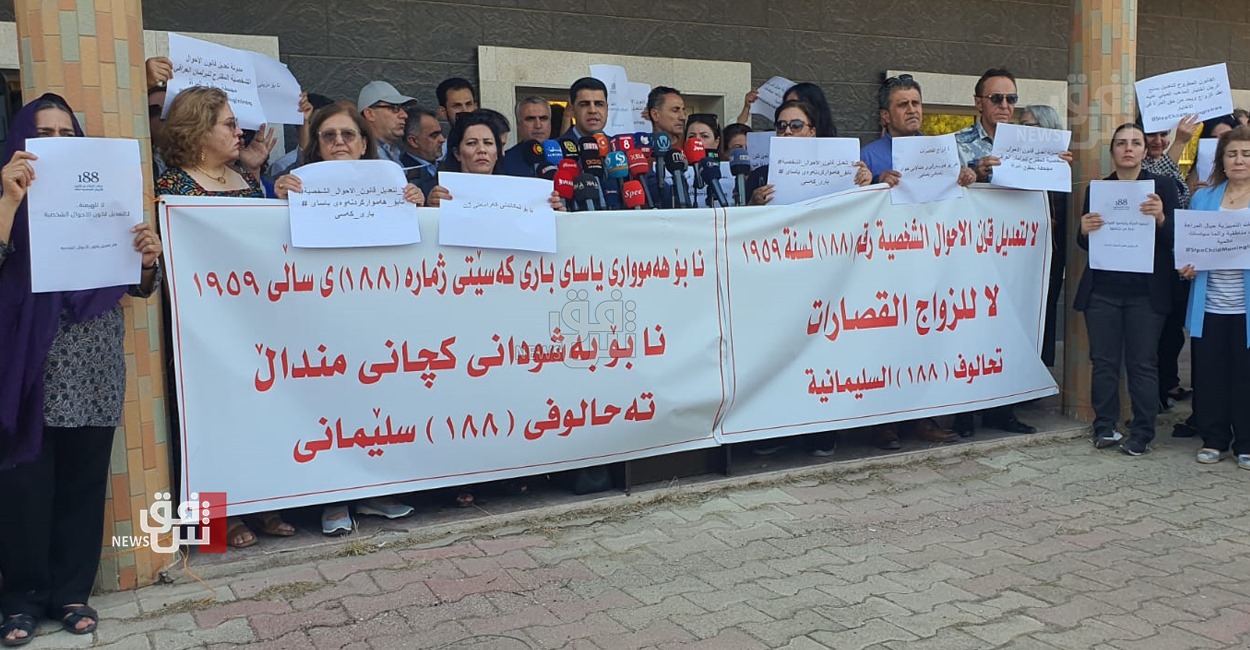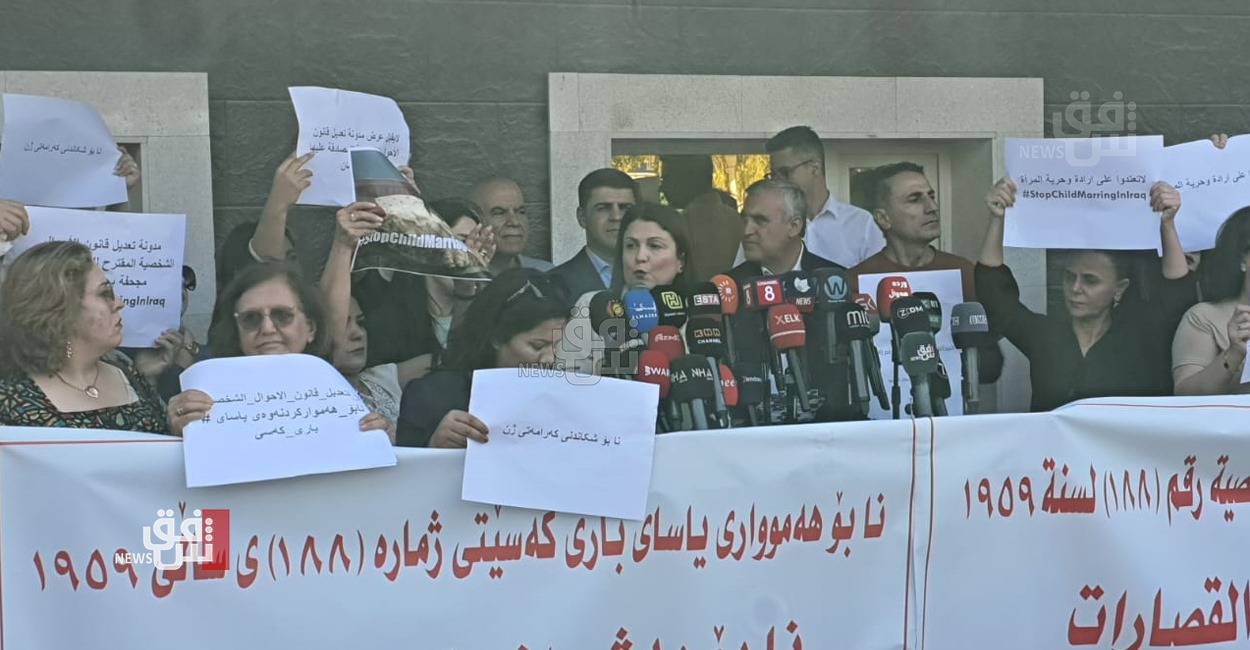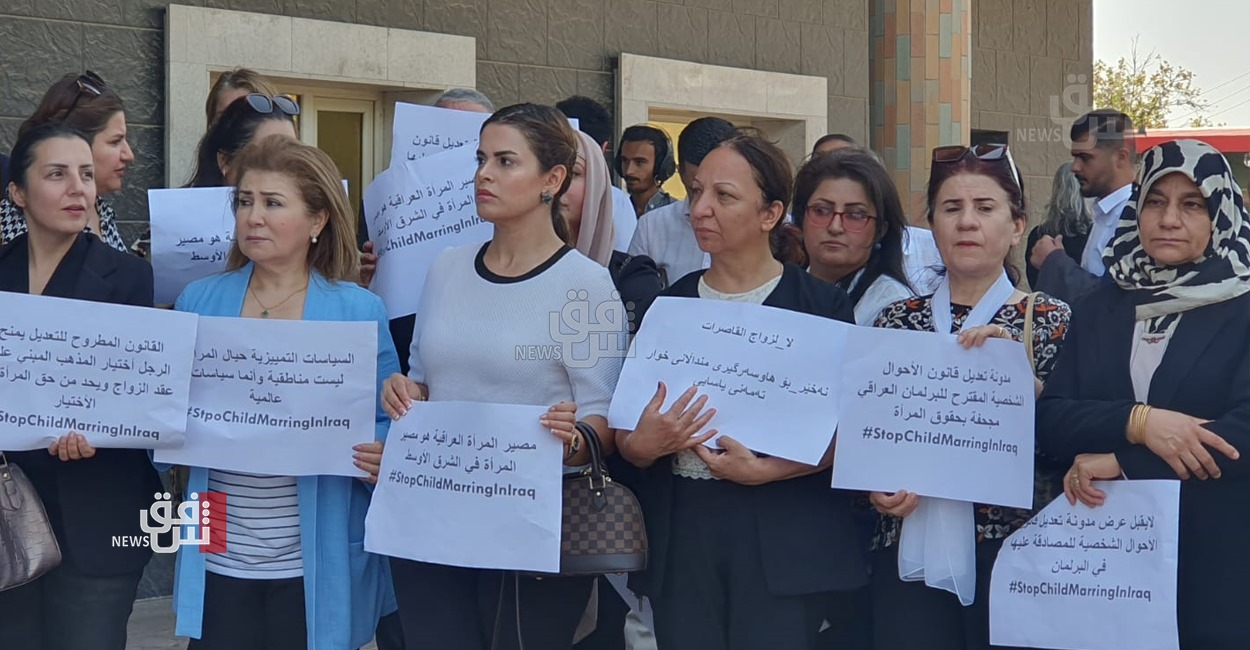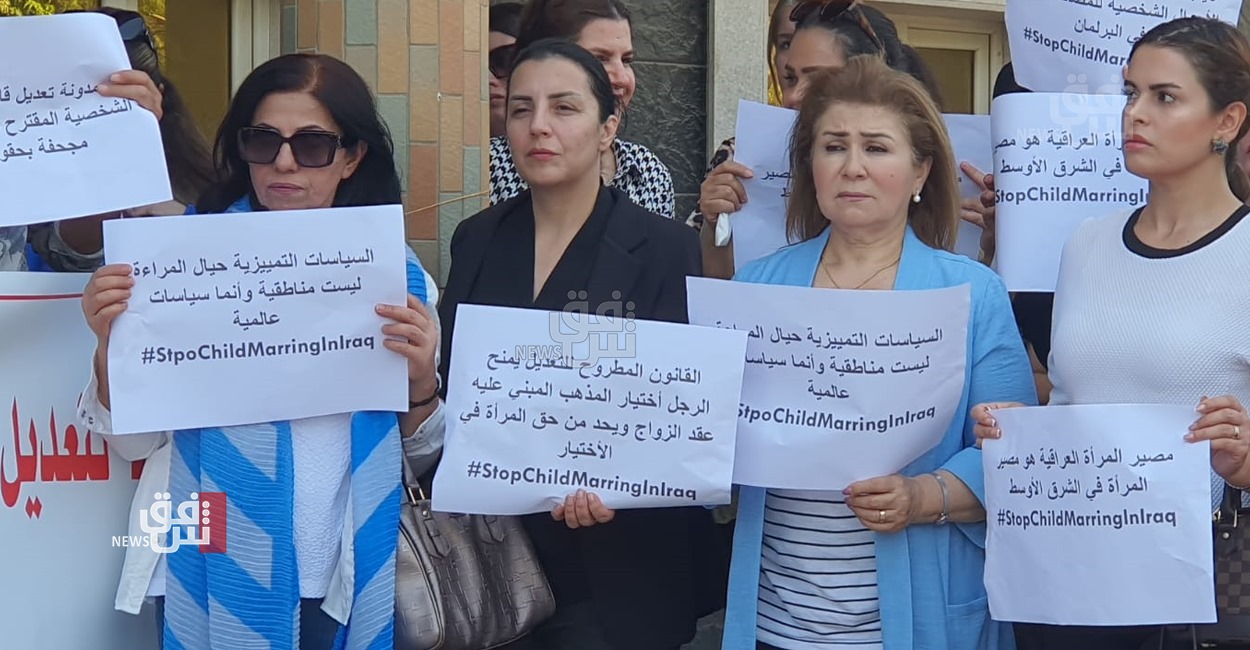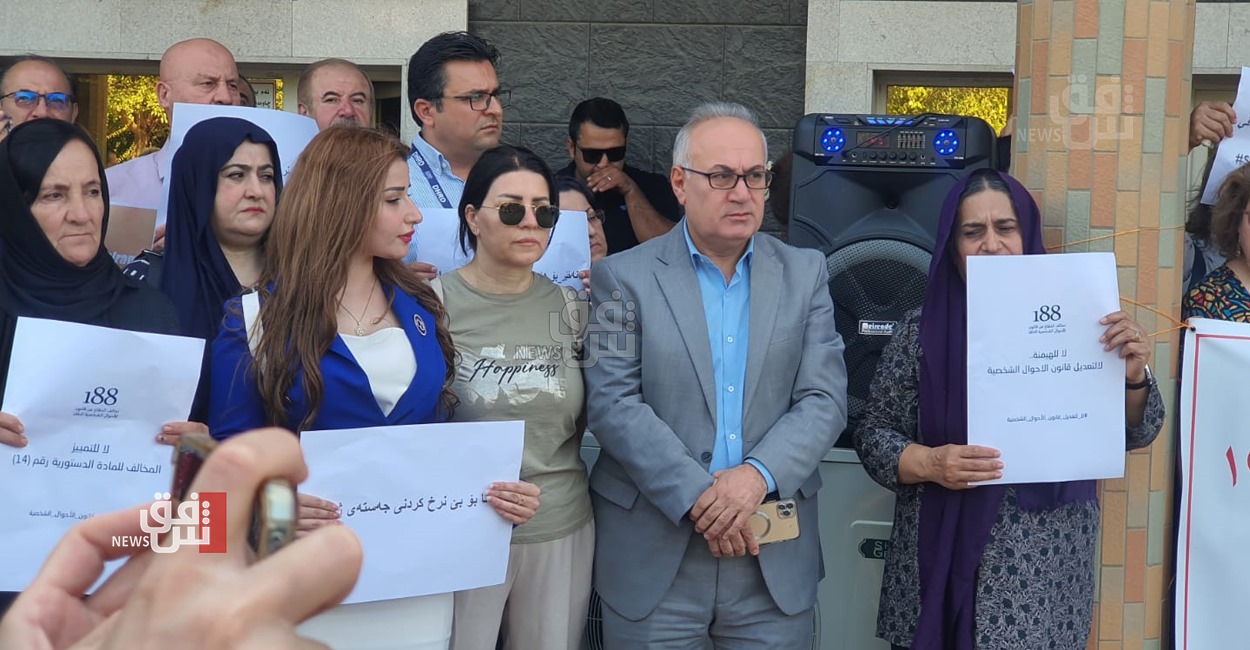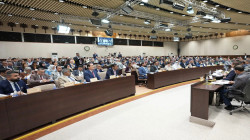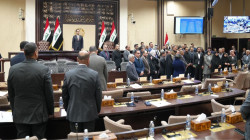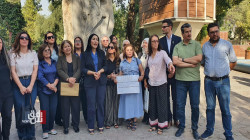Coalition "188" protests in al-Sulaymaniyah against proposed Personal Status Law amendment
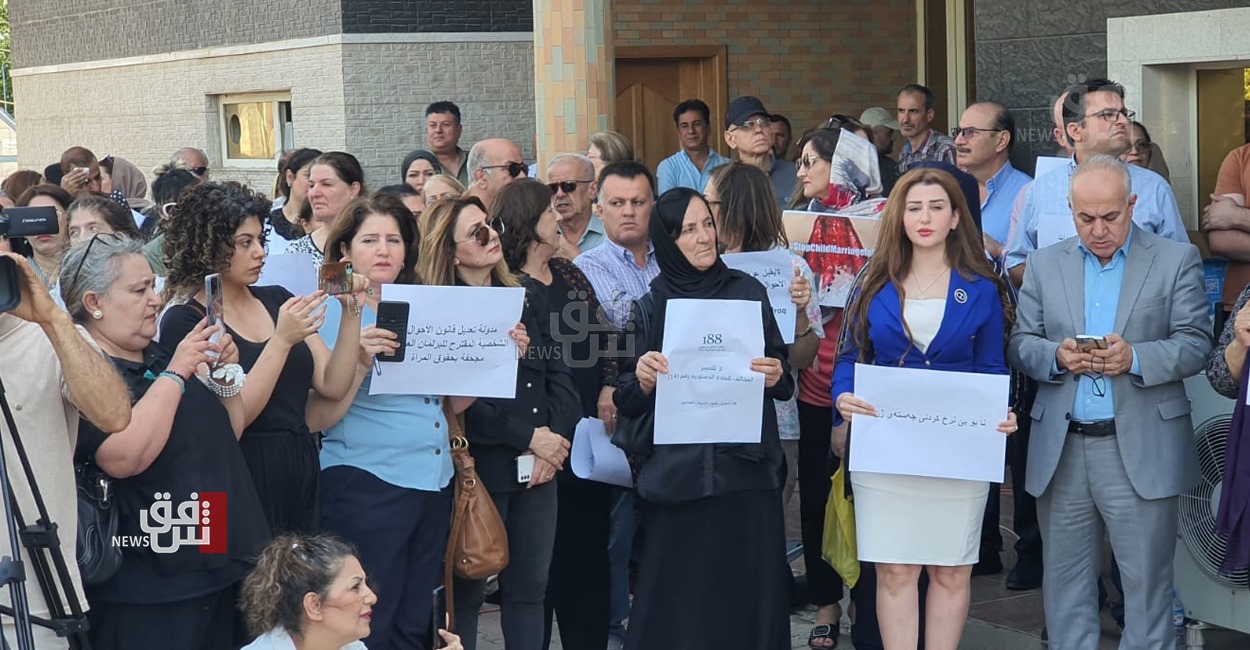
Shafaq News/ On Thursday, the "188" Coalition organized a protest in al-Sulaymaniyah governorate outside the Iraqi Parliament's office, denouncing the proposed amendment to the Personal Status Law.
The "188" Coalition, named after Iraq's Personal Status Law No. 188 of 1959, is a social and civil alliance dedicated to defending civil laws and public freedoms against amendments threatening national unity and promoting sectarianism.
Bahar Munther, a coalition member, stated that the protest included women's rights activists, civil society organizations, Iraqi parliament members, legal experts, and psychologists. "The coalition opposes the amendment, which would allow marriage for girls at the age of nine and replace legal provisions with religious doctrine, contradicting the Universal Declaration of Human Rights signed by Iraq."
Munther emphasized that the coalition views this amendment as a "threat to families, children, and society," and has conducted awareness campaigns, gathered signatures, and submitted protest letters to various authorities.
Activist Susan Al-Sormeri highlighted the negative impact of the amendment on families, society, and human rights, noting Iraq's "poor record in implementing international agreements such as CEDAW and the Convention on the Rights of the Child."
Notably, the 188 coalition has organized protests across Iraq, urging societal and political forces to join them in opposing the amendment, which they see as a threat to the constitution and civil values. It also advocates for legislation that improves Iraqis' economic and social conditions, rather than divisive amendments, and has garnered support from prominent figures concerned about the amendment's impact on Iraq's social fabric.
The amendment of the Personal Status Law has generated significant controversy among the Iraqi public, leading the Iraqi government to decide to review all comments through the "Higher Council for Women's Affairs."
Opponents of the amendment argue that it permits child marriages, deprives wives of alimony and custody rights, and shifts the basis for legal rulings to religious texts specific to each sect and denomination in Iraq rather than the current secular laws.
